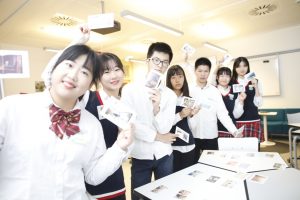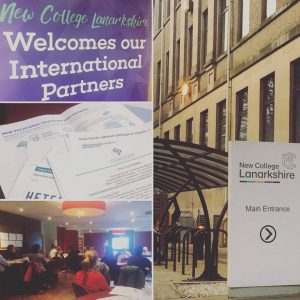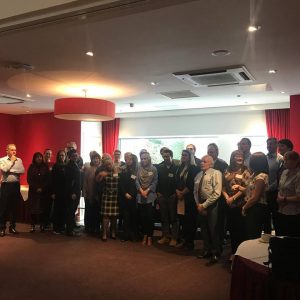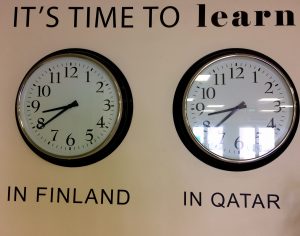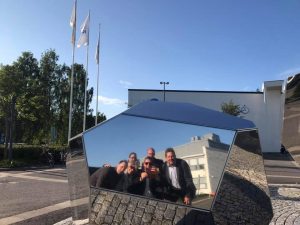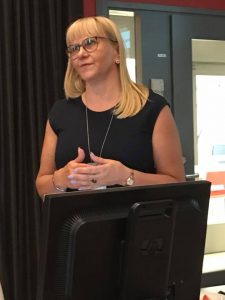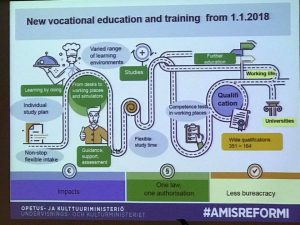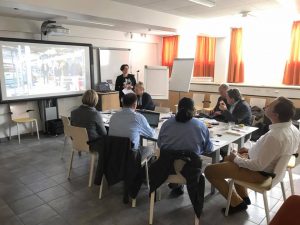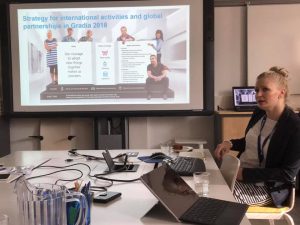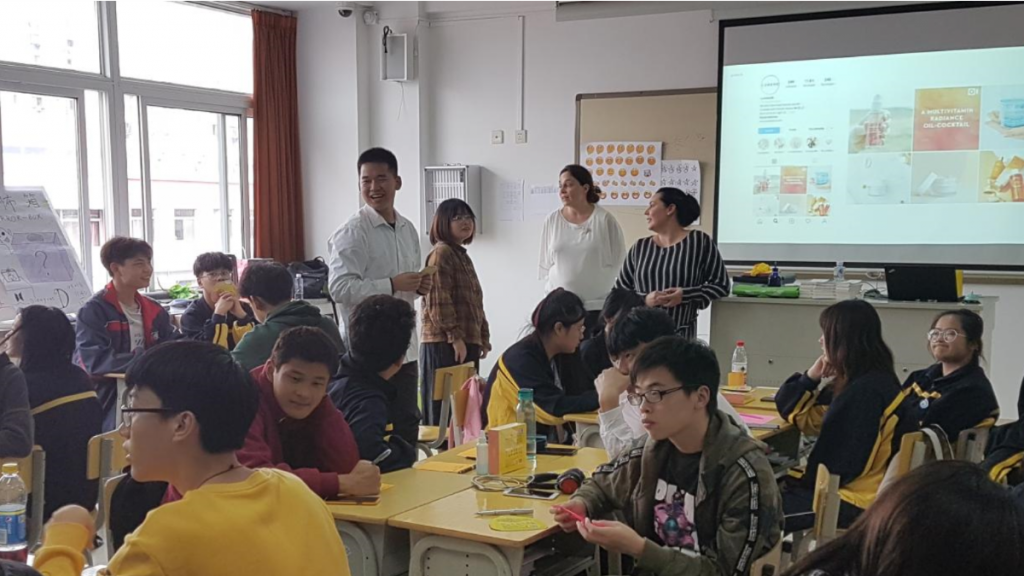
Gradia has launched two diploma programs with new Chinese partners during autumn 2019. Programs are joint efforts with EduCluster Finland.
Entrepreneurship as an exciting learning method
At Shanghai Modern Circulation School, 35 third-year business students aged 18-19, began studies in marketing communication and content production in October 2019 in accordance to the Finnish Vocational Qualification in Business. The program highlights entrepreneurship as a method in learning new skills and competences and gives a chance to complete one accredited Finnish module in business.
As a part of the program, students establish so-called mini-companies and learn the required competences by running those companies. Entrepreneurship is an efficient learning method. In addition to acquiring competence specific to business, students learn so-called 21st century skills like problem-solving, collaboration, communication.
The program is run by two Gradia experts, Ms Johanna Ärling and Ms Elina Maukonen, both working as business teachers at Gradia. They shared their observations and experiences just after their first two-week session in China.
Johanna tells that the training program is based on teamwork and hands-on exercises.
“Students really like the idea of learning by doing and having less traditional theory lectures. In our program, they have a permission to make mistakes and to learn from them. They appreciate the possibility of working in teams and sharing and testing their own ideas with working life representatives.”
Johanna and Elina have paid attention to the differences in Finnish and Chinese VET systems. In China the system is teacher-centered whereas in Finland we emphasis student-centeredness.” Teachers are running the classes in a traditional way and students are less active during the classes than in Finland.”
The Finnish pedagogy challenges the Chinese students to learn differently “They need to be active all the time, figuring out the answers and ideas by themselves,” says Elina. “Naturally a different learning and teaching culture challenges us Finnish teachers but once students get used to collaborative, hands-on learning methods, the results are very good,” adds Johanna who is experienced in running training programs in China.
Although there are some differences, there are lot of similarities as well. “Both in Finland and China we all want our students to have a good chance to find a job after the graduation,” says Johanna.
According to Johanna and Elina, Finnish VET qualifications are well applicable for the Chinese market. Finnish qualifications are competence-based and the competences are not dependent on national boundaries. “But since Chinese are not familiar with competence-based structured qualifications we need to explain the system and contents carefully and make them easy to understand.”
Johanna and Elina say that they have learnt a lot by working as an expert overseas. “We have learnt e.g. about the Chinese business life, education and culture. But certainly, to match training with local needs, more information is still needed. More information and experiences we have the better programs we are able to provide.”
Enhancing school-company collaboration
Development of school-company collaboration is one of the national priorities in Chinese vocational education and training. Cooperation is essential in increasing the quality and attractiveness of vocational education. Finland as a forerunner in developing different kind of work-based learning models has lot to share. Therefore, Gradia has developed the teacher training program called Skills Broker to improve the match between training provision and the needs of the industry. The first Skills Broker Teacher training program was successfully piloted in China in 2018-2019.
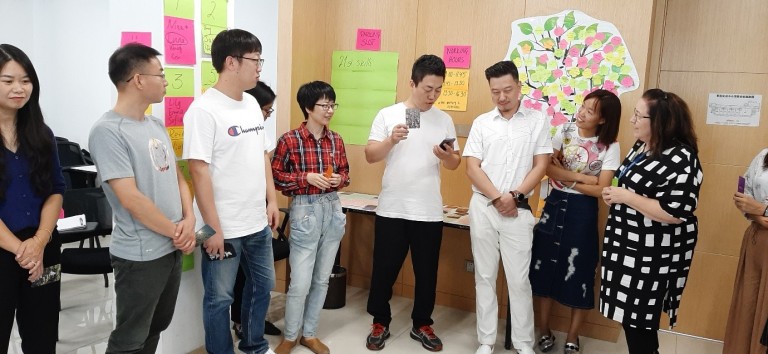
In September 2019, Gradia launched Skills Broker program for 30 teachers from Changzhou Technical Institute of Tourism and Commerce. Teachers are developing cooperation with local enterprises using the methodology of service design. The program has been aligned with a service design module from the Finnish Specialist Qualification in Product Development. Teachers who pass the program successfully will get an accredited Finnish diploma of completing part of the qualification. The program consists of intensive weeks in Changzhou, distance learning (team and development work) and competence assessment.
Ms Maritta Kinnunen, working as a lead expert in Skills Broker program shares the experiences of Johanna and Elina. “In China it seems that the education is more teacher-centered than in Finland – whereas we have an emphasis on student-centered learning and teaching. This means that the teachers in Skills Broker program are not only getting tools to develop school-company collaboration but also tools for promoting student-centered methods in their own teaching.”
More information Kirsi Koivunen (at)gradia.fi
